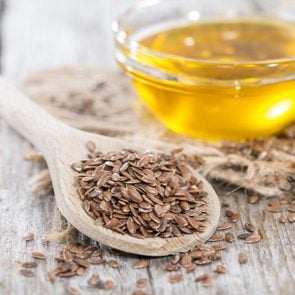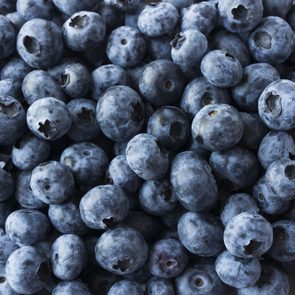Fenugreek Benefits: Can It Help Treat Diabetes?
Updated: Oct. 12, 2022
The fenugreek herb has a rich history and may have health benefits.
Our editors and experts handpick every product we feature. We may earn a commission from your purchases.
Fenugreek benefits have been apparent for ages: Seeds of this annual herb, a member of the pea family, were found in Tutankhamun’s tomb and reference to it first appears on ancient Egyptian papyrus dated to 1500 BC. Its aromatic properties make it a staple of Indian and Middle Eastern cookery and it has a long history of uses in traditional medicine.
One small study, published in 2017 in the journal Ayu, randomly assigned 60 patients with type 2 diabetes to either an experimental or control group. Half of them consumed 10 grams a day of fenugreek seeds (soaked in water) along with their usual diabetes medication 30 minutes before their meal; the others stuck to their usual routine, receiving only their diabetes medication. The fenugreek group showed reductions in fasting blood sugar after five months and in HbA1C after six months compared with the control group. While long-term, controlled trials are needed, the authors concluded that fenugreek may have a “synergistic” effect along with diet control and exercise.
Historically, the fenugreek has been used to help relieve digestive problems, eczema, and other health issues, according to the National Center for Complementary and Integrative Health (NCCIH). It’s also “thought to have a positive effect on metabolism and possibly blood pressure,” says Kellie Rodriguez, RN, a certified diabetes educator and director of the Global Diabetes Program at Parkland Health & Hospital System in Dallas, Texas. “However, the most effective ways to the risk for type 2 diabetes are the following: maintain ideal body weight, especially waistline measures; aim for 150 minutes of exercise weekly, especially exercise that combines aerobic activity and strength training; and eat healthy balanced meals–for instance, lean meats, grains and fresh fruits and non-starchy vegetables.”
How fenugreek works
The powdered seed, available as capsules, is high in soluble fiber that slows the absorption of sugars in the stomach, while the presence of the amino acid 4-hydroxyisoleucine may help to stimulate insulin production, according to the Ayu study authors. Fenugreek seeds are also a good source of vitamins, minerals, and antioxidants, helping to protect the body’s cells from damage caused by free radicals. Check out another surprising benefit of fenugreek.
How to use fenugreek
Fenugreek leaves and seeds can be used to add a slightly sweet, nutty flavor to savory dishes. Fenugreek can also be taken as capsules, tablets, or as a tea. (Some people soak seeds overnight to produce fenugreek water to consume in the morning.) With all products, follow label instructions or take as professionally prescribed, advise the experts at the NCCIH. Mild diarrhea, gas, or bloating can occur during the first few days of use, but these side effects usually pass quickly.
Safety first
Fenugreek is safe when consumed in food but check with your doctor before using supplements if you are taking prescribed diabetes medications, thyroid hormone or anticoagulant medications such as warfarin or aspirin. Fenugreek is best avoided during pregnancy, warn experts with the NCCIH: It could cause early contractions. Fenugreek shouldn’t be your first solution for diabetes therapy but if you’re doing everything you can and you’re not on medications where it would interfere, the supplement may be worth adding to your regular diabetes treatment plan. Check out the ways diabetes doctors manage blood sugar.
Where to find fenugreek
Fenugreek capsules are available in health food stores and supermarkets. Fenugreek—or “Methi”—leaves can be found in Asian supermarkets or from a qualified herbalist.

Get more natural remedies doctors approve!
The book Doctors’ Favorite Natural Remedies offers effective ways to treat more than 85 health conditions and evaluates the most commonly used alternative therapies and supplements. Learn more and buy Doctors’ Favorite Natural Remedies here.



